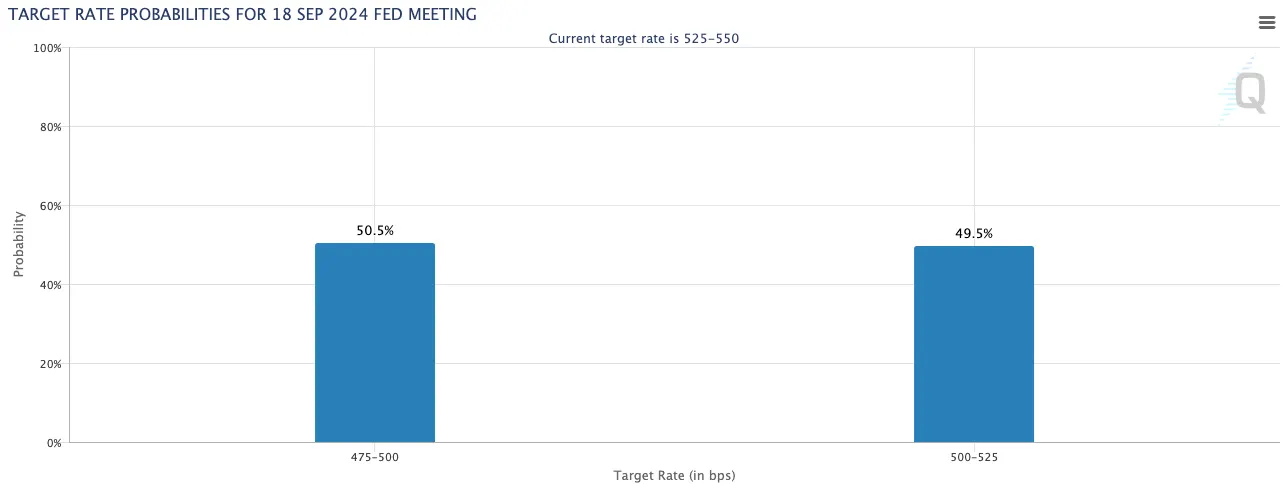Bitcoin, Ethereum Hold Steady as Inflation Slows to 2.9% - Decrypt
08/14/2024 12:51
Inflation has slowed significantly since peaking at 9.1% in June 2022. But it still remains above the Fed's 2% target.
The price of Bitcoin was little changed Wednesday after a widely watched inflation gauge came in cooler than expected.
The Consumer Price Index (CPI) rose 2.9% in the 12 months through July, the Bureau of Labor Statistics reported Wednesday. Economists expected the index, which tracks price changes across a broad range of goods and services, to rise 3% year over year.
On a monthly basis, consumer prices rose 0.2% compared to June. The increase comes after consumer prices fell month-to-month for the first time since May 2020 in June.
Following the report’s release, Bitcoin's price hovered around $61,200, notching gains of 3.9% over the past day, per data from CoinGecko. Meanwhile, the price of Ethereum and Solana rose 3.9% and 3.8% respectively, to $2,740 and $151.
Inflation slows
Wednesday’s report indicated that inflation is moving in the direction of the Federal Reserve’s 2% target. And the U.S. central bank is expected to ease monetary policy next month after ratcheting its benchmark interest rate to its highest levels since 2007.
Inflation has slowed considerably since peaking at 9.1% in June 2022, as higher interest rates weigh on economic activity through increased borrowing costs. Falling for a fourth month in a row, July’s inflation reading was the lowest since March 2021.
Traders are confident that the Fed will cut interest rates in September; the question now is by just how much. On Wednesday, traders penciled in a 50% chance that the Fed delivers an outsized rate cut of 50 basis points as opposed to a quarter-percentage-point cut, per the CME FedWatch Tool.

Weaker-than-expected job growth in July spooked global markets early this month, as recession fears briefly pushed Bitcoin below $50,000. At the same time, global markets were roiled by the unwinding of a so-called yen-carry trade, as Japan’s central bank adopted a hawkish monetary policy stance. However, upbeat data on U.S. service jobs assuaged negative outlooks, according to the market maker Wintermute.
“Recent PMI data challenges recession predictions, indicating the U.S. economy is more resilient than previously thought,” Wintermute analysts wrote. “While economic hurdles persist, the outlook is less gloomy than earlier forecasts.”
As the Fed contemplates a likely rate cut, policymakers are effectively walking a tightrope. Cutting interest rates too early could cause inflation to rear its head, while holding them high for too long could tip the U.S. economy into a recession.
Before the Fed decides how to balance its dual mandate of stable prices and maximum employment, it will have the opportunity to mull more data. Personal Consumption Expenditures data, the Fed’s preferred inflation gauge, will be released August 30.
Daily Debrief Newsletter
Start every day with the top news stories right now, plus original features, a podcast, videos and more.